|
Tanzania’s health minister announced early this month that the country has no intention of procuring vaccines. Catherine Kyobutungi describes how the country’s leaders have gone against the recommendations of scientists and the World Health Organisation. This includes recommending to Tanzanians that they turn to prayer and traditional medicine to protect themselves against COVID-19. She sets out what the implications are – for Tanzania,
its neighbours and the world.
Madagascar has also said it won’t be vaccinating its population. Pathology expert Ahmed Kalebi unpacks why the approaches taken by Madagascar and Tanzania present a problem. One is that it creates a breeding ground for the new coronavirus – SARS-CoV-2 – to mutate into more aggressive variants which current vaccines may not be effective against.
In Ghana, a surge in COVID-19 infections on the back of a new variant of the disease has brought the pandemic back into the headlines. This has led to questions being raised about the country’s readiness to roll out a vaccination programme. Nana Kofi Quakyi looks at the major stumbling blocks facing the president’s stated ambition of ensuring every Ghanaian is vaccinated.
|

One of Tanzania’s approaches to managing the spread of the new coronavirus is through prayer.
Photo by STRINGER/AFP via Getty Images
Catherine Kyobutungi, African Population and Health Research Center
The pandemic will not end for anyone, anywhere until it is controlled in every country. Tanzania’s approach will make it that much harder for normality to return.
|
|
|

Ahmed Kalebi, University of Nairobi
Even those that live in areas where the population has already been vaccinated would not be totally protected if the virus mutates elsewhere.
| |

Nana Kofi Quakyi, New York University
Ghana's mid-year target of procuring and administering 17.6 million COVID-19 vaccine doses may be constrained by global supply, cold chain capacity, and vaccine hesitancy.
|
|
|
Politics + Society
|

Yohannes Eneyew Ayalew, Monash University
In a country where judicial review is not constitutionally guaranteed, hate speech legislation could shackle freedom of expression and limit citizens' rights to express themselves.
| |
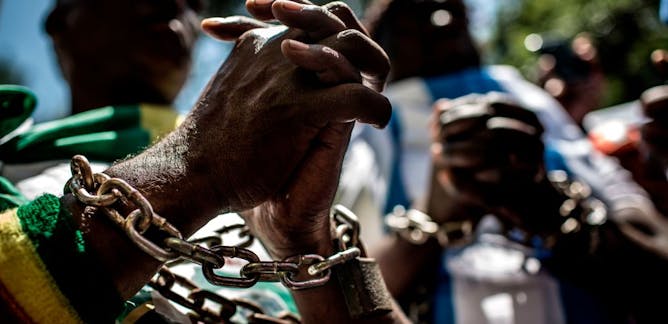
Marie Rodet, SOAS, University of London; Bakary Camara, Université des sciences juridiques et politiques de Bamako; Lotte Pelckmans, University of Copenhagen
Descent-based slavery – when a slave status is ascribed to a person based on their alleged ancestry – continues to exist in Mali.
|
|
|
Energy + Environment
|

Lucia Anelich, Central University of Technology; Jeffrey M. Farber, University of Guelph; Ryk Lues, Central University of Technology; Valeria R Parreira, University of Guelph
Food safety agencies have assessed the risk of acquiring COVID-19 from contaminated food or food packaging. They found that currently, there's no evidence that the virus is a food safety risk.
| |
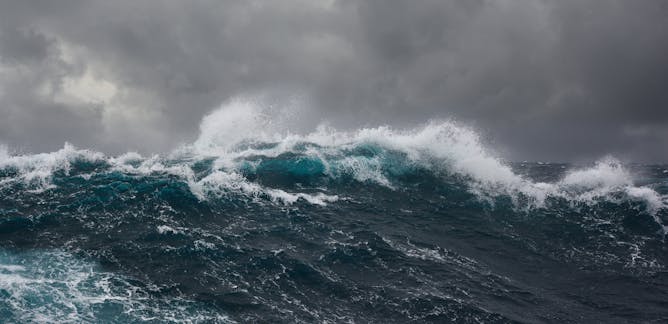
Wes Mountain, The Conversation
Oceans 21 is a Conversation international series examining the history and future of the world's ocean.
|
|
|
En Français
|

Thomas Gourdon, Ademe (Agence de la transition écologique); Sylvie Padilla, Ademe (Agence de la transition écologique)
Mal connu du grand public, l’enjeu de la décarbonation de l’industrie lourde est pourtant celui dont découlent beaucoup d’autres.
| |
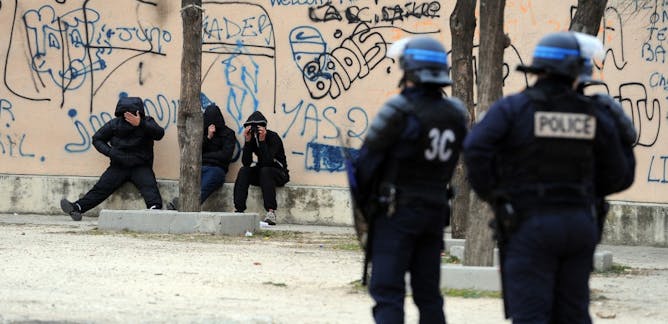
Thomas Sauvadet, Université Paris-Est Créteil Val de Marne (UPEC)
Le phénomène des « bandes » est loin d’être nouveau. Mais il a connu des évolutions liées à la précarisation, à l’augmentation du trafic de drogues et à la popularisation d’une culture « gangsta ».
|
|
|
En español
|
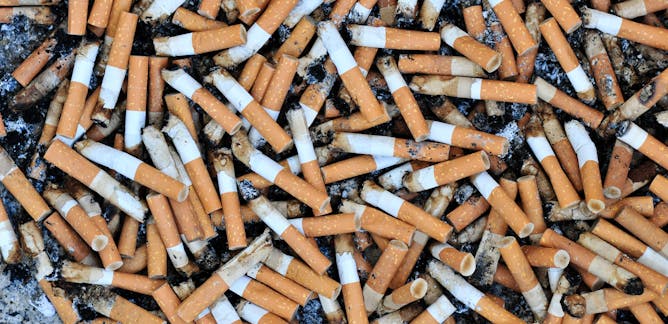
Francisco Belzagui Elder, Universitat Politècnica de Catalunya - BarcelonaTech; Carmen Gutiérrez-Bouzán, Universitat Politècnica de Catalunya - BarcelonaTech
Los filtros de cigarrillos liberan millones de toneladas de microfibras que pueden viajar largas distancias por el aire o por el agua y ser ingeridas por todo tipo de organismos, incluido el hombre.
| |
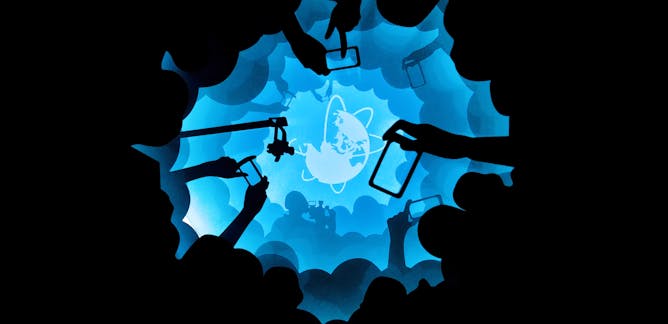
Jesús Rey Rocha; Emilio Muñoz Ruiz
El concepto de cambio climático o cambio global resulta demasiado difuso para definir el fenómeno que vivimos. Nos encontramos ante un proceso de deterioro ambiental; ante una pandemia ambiental.
|
|
|